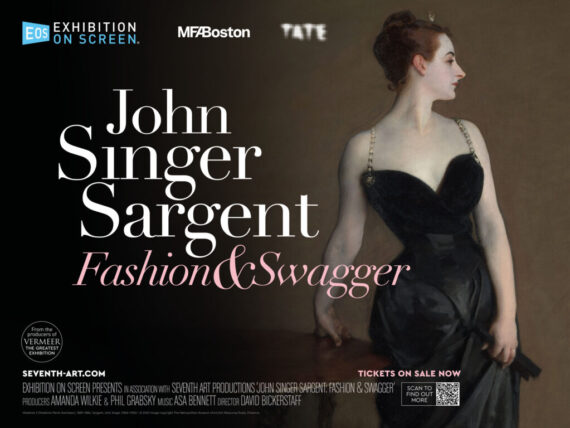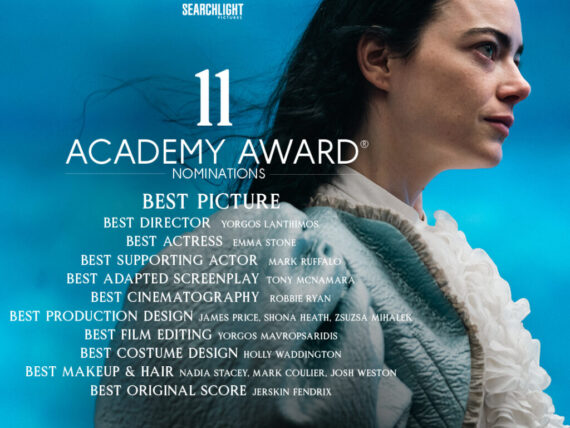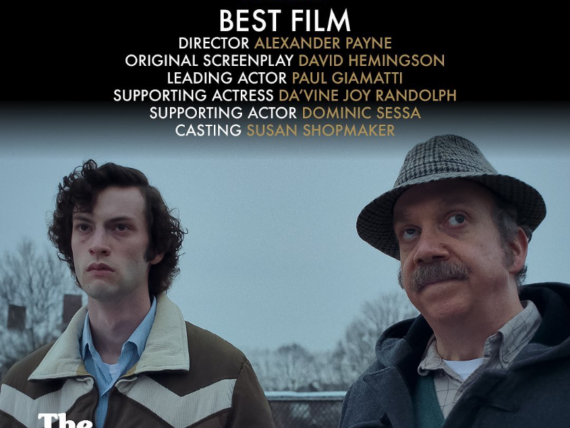
Information on future screenings can be found on our website
Kenneth Branagh’s Romeo and Juliet – Plymouth Arts Centre LIVE7.7.2016
A question I always like to ask myself after watching any play is, “could I have just sat at home and watched that on the telly?” The recent trend for cinemas to live-stream theatre performances throws a bit of a spanner in the works with this – you are watching both a live dramatization and something televisual. The burden, therefore, on those directing is not only to make the drama crackle with raw energy to the audience in the room, but potentially to thousands of onlookers watching around the world as well.
Kenneth Branagh’s Romeo and Juliet at London’s Garrick theatre is the latest in a series of these worldwide broadcasts and included a showing at Plymouth Arts Centre this evening. What was interesting about tonight was that, far from trying to ignore the fact we were watching a telecast rather than actually being there, it positively embraced the idea. The setting was still Verona, only we were informed in an introductory film that this had been thrown forward to the 1950s. Consequently, what we saw was displayed in grainy black and white, like a neo-realist picture or even something from Fellini. We were even given some suitably calligraphied end credits.
This is not to say that the perils of real live performance did not intrude in one way or another. Branagh entered the stage before the curtain-lift to inform everyone that Richard Madden (famously Rob Stark in Game of Thrones, here playing Romeo) had injured his ankle. This was greeted with a collected intake of breath (mainly from the female members of the audience, I must say) before it was revealed, to some relief, that he was still pressing on with the show, albeit a little incapacitated.
Madden was paired with Lily James (who recently played Natasha for the BBC’s War and Peace) and they both gave their parts plenty of zest, even managing to find some bawdiness in the lines beyond what was intended by the notoriously gutter-minded Bard. But, despite their passion, we all know it ends in tears and their doomed affair is reflected well in the oppressive pillars that pen them in, still pock-marked with bullet holes from the struggles of Italy’s very recent past.
Thought to be one of Shakespeare’s earliest plays, in honesty Romeo and Juliet contains one of his less well-imagined tragic romances. Instead, it always stands or falls on the supporting parts. In particular, it must have a good Mercutio and fortunately in this respect our luck was truly in. Cast against the character’s age by convention, Derek Jacobi was exceptional, choosing to portray him as an aging dandy with a rough edge, rather than a young buck with his heart on his sleeve. Both as debonair as his age permits and as mercurial as his character’s name suggests, Jacobi was a joy to behold.
Together with a supporting cast that included luminaries such as Marisa Berenson and Meera Syal, this was a production that zipped along but did not forget where its heart truly lies. Bravo, Mr Branagh.
Ieuan Jones
There have been many versions of the classic Shakespeare tragedy of Romeo and Juliet. From the energetic and plain fantastic musical West Side Story, to the more traditional 1968 version of the play and the contemporary Baz Luhrmann film from 1996. The story has been remade and reinvented countless times and Kenneth Branagh’s take on the play is fresh and compelling.
The play was broadcast live in cinemas nationwide and it was a completely unique cinema experience. There were shots of the audience prior to the show starting and you really felt part of the performance despite being hundreds of miles away. In the run up to the show Kenneth Branagh came on for a brief introduction which must have been a nice bonus for the theatre audiences, he explained that the play would be broadcast in black and white to reflect some of the Italian films of the 1950’s and 1960’s, for example La Dolce Vita. It was an odd choice considering this would not be the experience that the theatre audience would be getting but due to this versions mid-20thcentury setting it did work and gave the experience a more cinematic feel. In fact the costume design was very good and some of Romeo’s suits were very Mad Men-esque. Out of all the versions there have been of Romeo and Juliet I did get a sense that West Side Story was the biggest influence. That film of course was set in the beginning of the 1960s and relied heavily on songs. This play had more songs than I was expecting and the costumes were very similar to the characters in West Side Story.
The play also served as an interesting Cinderella reunion. The 2015 live action version was of course directed by Kenneth Branagh and starred, Lily James, Richard Madden and Derek Jacobi who are the three principal characters of this story. Out of the main cast I felt Lily James was the standout. Her Juliet is young, passionate and keen to break free from her dominant and over bearing parents. It isn’t really hard to work out why Richard Madden’s Romeo becomes smitten with her almost instantly. I had read a review which did say that Richard Madden (of Game of Thrones fame) was a bit wooden, but I did not find that to be the case in this evening’s performance. His Romeo was very likeable and more of an alpha male than Leonardo Di Caprio’s admittedly boyish version in 1996. In fact it made a nice change for the two star-crossed lovers to be the most interesting aspect of the play where I always feel in other versions that characters such as The Nurse, Mercutio and the two gangs in West Side Story often steal the show from the two title characters. Derek Jacobi however does do a fair bit of scene stealing. I was a bit surprised that he was playing Mercutio, a character that is Romeo’s best friend, and is often played by someone of a similar age. Kenneth Branagh explained that the inspiration came from stories of an aged Oscar Wilde living his last years in Paris and frequenting various cafes and bars. I was intrigued by how it would work and work it did, Derek Jacobi was brilliant as Mercutio. He was more of a mentor than a best friend which made much more sense and he brought plenty of comedy to the always more enjoyable first act.
Apart from some issues with the sound which turned out to be a problem with the sound of the play itself, the Live Theatre/Cinema experience was a success and the audience response was mostly positive. The story is still captivating and Kenneth Branagh can now add another Shakespeare classic to his already large and Bard heavy CV.
Ben Cherry
@bcherry90








Comments
No comment yet.